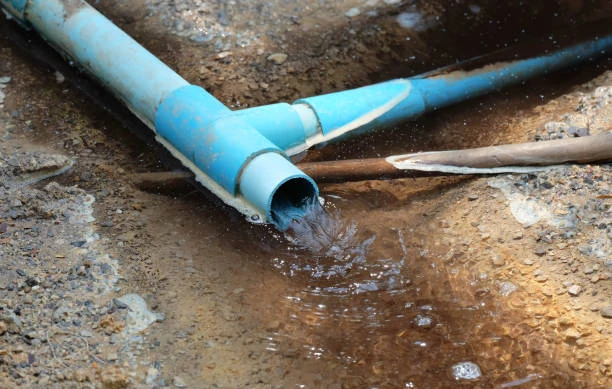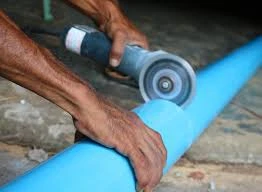Plastics play a crucial role in modern water management systems, offering innovative solutions for saving water. By reducing waste, improving efficiency, and enhancing durability, plastics help conserve this precious resource. Below, we explore how plastics contribute to saving water in agriculture, infrastructure, and daily life.
Saving Water with Plastics in Irrigation Systems
Plastics improve irrigation systems by providing lightweight, durable, and efficient pipes and fittings. Drip irrigation systems made from plastics minimize water loss by delivering water directly to plant roots. These systems ensure farmers save water while maximizing crop yields, especially in arid regions.
Plastic Water Tanks Help Save Water
Plastic water tanks store water efficiently and prevent contamination. Their lightweight nature allows easy installation in homes, farms, and industrial areas. By collecting and conserving rainwater, these tanks reduce reliance on municipal water systems, promoting water conservation.
Saving Water with Plastics in Plumbing Systems
Plastic pipes and fittings in plumbing systems reduce leaks and prevent water loss. PVC and PE pipes resist corrosion, ensuring long-lasting water distribution networks. These reliable materials save water by maintaining efficient flow and reducing the need for repairs.
Plastics Improve Water Filtration Systems
Plastics are essential in water filtration systems, helping provide clean water while reducing waste. Plastic filters, membranes, and cartridges improve filtration efficiency. These components help conserve water by optimizing purification processes in homes and industries.
Saving Water with Plastics in Municipal Infrastructure
Municipalities use plastic pipes and fittings for water distribution and wastewater management. Plastics reduce leakage in large-scale infrastructure, saving significant amounts of water. Their durability and cost-effectiveness make plastics an ideal choice for public water systems.
Plastic Liners Save Water in Reservoirs and Canals
Plastic liners in reservoirs and irrigation canals prevent seepage and evaporation. These liners, made from HDPE or other durable plastics, ensure efficient water storage and transport. By reducing water loss, they support sustainable agriculture and urban water supply systems.
Saving Water with Plastics in Smart Technologies
Smart irrigation and water monitoring systems use plastic components to enhance water management. Sensors and controllers housed in plastic casings optimize water usage in agriculture and landscaping. These technologies help conserve water by preventing overuse and ensuring precise application.

Plastic Packaging Saves Water in the Food Supply Chain
Plastic packaging plays a vital role in preserving food, significantly contributing to water conservation efforts by reducing spoilage-related waste. Food production requires vast amounts of water at every stage, from farming and processing to distribution. When food spoils, this water is effectively wasted. By extending the shelf life of products, plastic packaging helps prevent spoilage, ensuring that the water used to grow, process, and transport food is not wasted.
Advanced plastic packaging technologies, such as vacuum sealing, moisture barriers, and oxygen-reducing materials, create protective environments that maintain the freshness and quality of food for longer periods. For perishable items like fruits, vegetables, meat, and dairy, plastic packaging reduces the risk of premature spoilage, especially during long transportation or storage.
Lightweight and durable plastic packaging also minimizes water waste associated with logistics. Its lightweight nature reduces fuel consumption during transportation, indirectly conserving water used in fuel production. Additionally, the durability of plastic packaging prevents leaks, contamination, or damage during transit, further reducing the risk of spoilage and waste.
Plastic packaging also supports innovations like portion-controlled packaging, which helps consumers use food more efficiently, reducing household waste. For example, resealable bags and individual servings encourage people to consume only what they need, preserving the rest for later use.
By ensuring that food reaches consumers in optimal condition and reducing the waste of water-intensive resources, plastic packaging makes a significant, albeit indirect, contribution to global water conservation. As the industry evolves, new advancements in biodegradable and recyclable plastics promise to further enhance the environmental benefits of this essential technology.
Plastic Pipes Facilitate Recycled Water Systems
Recycled water systems rely on durable plastic pipes to transport treated water for reuse. These systems save water by reducing reliance on freshwater sources. Plastics ensure the safe and efficient delivery of recycled water for agriculture, landscaping, and industrial use.
Future Trends in Saving Water with Plastics
The plastics industry continues to innovate, creating materials and systems that enhance water conservation. New biodegradable plastics and advanced filtration technologies promise even greater efficiency. Future developments will further expand the role of plastics in saving water.
FAQs About Saving Water with Plastics
1. How do plastics help save water in agriculture?
Plastics provide efficient irrigation systems, like drip irrigation, which reduce water loss and optimize water delivery to crops.
2. What makes plastic pipes better for plumbing systems?
Plastic pipes resist corrosion, prevent leaks, and offer durability, ensuring efficient water distribution and reduced water waste.
3. How do plastic water tanks support water conservation?
Plastic water tanks store water safely, prevent contamination, and collect rainwater, reducing reliance on municipal supplies.
4. Can plastics be used in recycled water systems?
Yes, plastic pipes and fittings safely transport recycled water for reuse in agriculture, landscaping, and industrial applications.
5. What role do plastics play in smart water management?
Plastics are used in smart irrigation systems and sensors, optimizing water usage and preventing overuse in various applications.


















